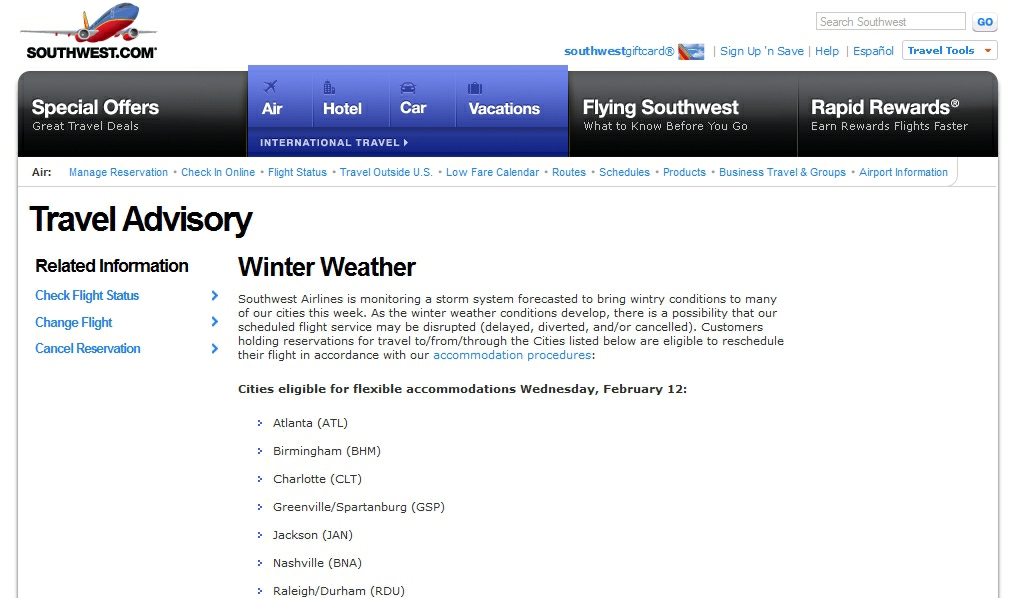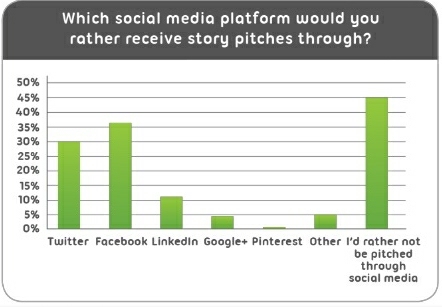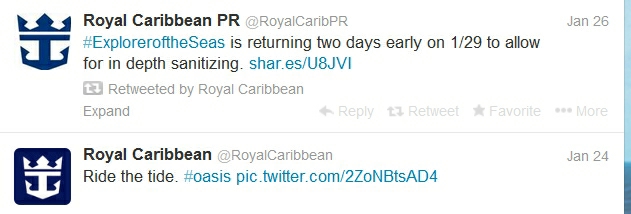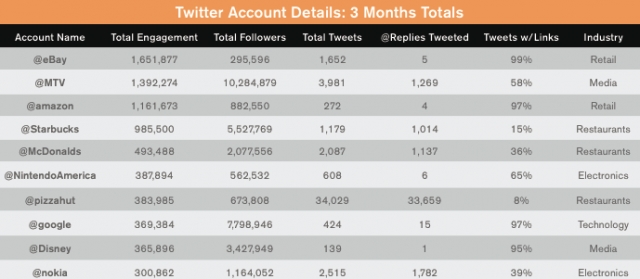Facebook's New Gender Options
Facebook is joining the twenty-first century, offering multiple options when users select "Gender" in their profile. Recognizing that not everyone self-defines as strictly "male" or "female," Facebook now provides more than 50 labels in its drop down menu:
On its diversity page, Facebook explains the change:
Users also can select the pronoun by which they would be referred on the site: he, she, or they. Students of business communication know that "they" isn't standard as a singular pronoun, although "one" is dated, "she/he" and "she or he" are clunky, and other variations haven't stuck. But considering the large number of gender labels, I wonder why more pronoun options aren't available.
Both the Human Rights Commission and GLAAD, which worked with Facebook on the change, applaud the move.
Discussion Starters:
- What's your view of Facebook's new options?
- What could opponents of the move say? What would be their rationale for limiting gender options?
- Why don't we have a common, neutral singular pronoun. If you were to invent one, what would it be?
"Whitest" Valentine's Day Ads Ever
Vice.com criticized FTD for producing stereotypical, white-only ads for Valentine's Day:
"Besides jewelers, the other big early February advertisers are of course flower-delivery companies. The biggest-Florists' Transworld Delivery-just released four new commercials, all featuring generic, white, hetero, annoying-as-humanly-possible actor-couples."
In four videos, FTD's ad agency Epsilon Chicago portrays couples arguing.
AdWeek also criticized the ads:
"These ads don't bite-they're amusing and well acted-but they do feel dated. The rhythm and style recall late-'90s/early-'00s sitcoms, with bird-brained guys and whiny women over-obsessing about their relationship woes. And why do we get youngish white hetero couples each time?"
The Vice.com article was particularly critical of the ad agency:
"Be thankful, Hispanics, African Americans, and Gays, who you are not in FTD's target demo. Because those scripts written by the white hack copywriters from the very white Chicago ad agency Epsilon would have been wincingly awkward, and probably racist."
Discussion Starters:
- With same-sex marriage winning popularity across the country and the population becoming increasing non-white, why would FTD focus only on white straight couples?
- Do you agree with Vice.com's concern that attempts for diversity would fail? Is it better to just play it safe? What are the other options?
Sands Casino Struggles to Recapture Website
Sands Casino's email and websites were hacked on Monday, and they're still down four days later. Sites in the U.S. and Asia, including Venetian Las Vegas and Palazzo, were affected by the invasion, which the FBI and Secret Service are investigating.
In place of the company websites, hackers posted employees' names, email addresses, and social security numbers; however, officials say that no customer information was compromised. The hacking may be in response to Sands CEO Sheldon Adelson's support of Israel. One posted image shows Adelson pictured with Israel's Prime Minister Benjamin Netanyahu-and flames instead of hotel pictures around the world.
In a statement, a Sands spokesperson said, "While we have been able to confirm that certain core operating systems were not impacted by the hacking, the company remains focused on working through a step-by-step process to ascertain what, if any, additional systems may have been impacted."
In the meantime, the company has this image posted on its home page:
Discussion Starters:
- Assess Sands' communications: how well is the company keeping people informed in its statement , on its website, and through other communications you find online?
- What could account for the long time the website has been under someone else's control? How does this happen to an organization?
Face Off or Faceoff, and Other Writing Tips for the Olympics
 The AP Standards Center has provided an overview of the Winter Games and tips for writing about the Olympics at Sochi. The purpose of the guide follows, in an introduction:
The AP Standards Center has provided an overview of the Winter Games and tips for writing about the Olympics at Sochi. The purpose of the guide follows, in an introduction:
"To help with spellings and usage in coverage of the Sochi Winter Olympics, The Associated Press compiled an editorial style guide of essential terms, spellings and definitions. Some terms are from the AP Stylebook: http://www.apstylebook.com/. Others are used in AP sports stories or contributed by Stephen Wilson, AP's Olympics beat writer.
In a section on "Spellings and usage," the guide offers these suggestions:
Capitalize games when attached to the host city or year: the Sochi Games and the 2014 Games.
When standing alone, spell games lowercase: The games open Feb. 7.
Olympics or Olympic Games are always capitalized: Winter Olympics and Summer Olympics. Each is staged every four years, but two years apart. The next Summer Games is 2016 in Rio de Janeiro.
Olympic (adj. without s) is always capitalized: Olympic gold medal, Olympic host city, Olympic flame, etc.
Discussion Starters:
- Read all of the style tips for the Winter Olympics. Which, if any, surprise you?
- Faceoff vs. face off follows the same rule for other nouns and verbs. What other examples fit this rule?
Southwest's Travel Advisory
Southwest Airlines is communicating clearly to customers affected by upcoming storms. In a tweet, the company linked to a simple page with further instructions.
Southwest isn't wallowing in the bad news (after all, it's not the company's fault that we're getting an insane amount of snow). Rather, it's focusing on what customers can do to reschedule. On the Travel Advisory page, customers can easily see which cities are affected on which dates and how they can rebook flights.
On the website home page, however, Southwest has only a small link with red text:
Compare this approach to JetBlue's. On JetBlue's website, the "Winter Storm Update" is one of three, large screens on the home page:
Discussion Starters:
- What could account for the airlines' different approaches?
- What works well about Southwest's Travel Advisory page? If you had travel plans during this time, what else, if anything, would you like to know?
AOL CEO Addresses Criticism
Like all CEOs, Tim Armstrong of AOL wants to keep health care costs under control. But he seemed to use two employees' "distressed babies" as his rationale for reducing the company's 401(k) program.
The current 401(k) program matches employees' contributions every pay period, but Armstrong announced that the plan would match only at the end of the year. This changed would have affected employees who leave the company before that time; they would receive no company match for the year.
In a town hall meeting with employees, Armstrong explained the rationale as prioritizing the benefits for employees who stay with the company. This makes sense, but his examples offended people:
"We had two AOL-ers that had distressed babies that were born that we paid a million dollars each to make sure those babies were OK in general. And those are the things that add up into our benefits cost."
In an email to employees, Armstrong apologized for his comments:
AOLers -
We began our journey together in 2009, and for the last four years have had an employee-first culture. As I have said before, the ability to change is a strategic advantage for us. With benefit costs increasing, we made a strategic, financial decision last year to revise our employee matching 401K program from a per-pay-period contribution to a yearly lump-sum contribution. We then communicated this decision in the fall through multiple channels to every AOL office in the US.
The leadership team and I listened to your feedback over the last week. We heard you on this topic. And as we discussed the matter over several days, with management and employees, we have decided to change the policy back to a per-pay-period matching contribution. The Human Resource team will be in contact with all employees over the next week to explain the change and to answer any other benefits related questions you might have. We are proud to provide AOLers with a robust benefits offering that spans from exceptional healthcare coverage to 401K's to AOL fitness programs and beyond. On a personal note, I made a mistake and I apologize for my comments last week at the town hall when I mentioned specific healthcare examples in trying to explain our decision making process around our employee benefit programs.
Thursday we announced an outstanding Q4 and end to our fiscal year. More importantly, it validated our strategy and the work we have done on it. AOL is positioned for future growth and our long-term strategy to be one of the world's leading media technology companies.
Now, as we begin 2014, let's keep up our momentum. Thank you for the great 2013 year and for your ongoing passion. And know that I am a passionate advocate for the AOL family – TA
This isn't the first time Armstrong is backtracking. Last year, he fired someone during an employee conference call that was recorded and went viral. He later apologized.
Discussion Starters:
- In what ways are Armstrong's financial concerns and comments understandable? Try to see the situation from his perspective.
- How could he have described the company's pressures in a different way?
- Did he make the right decision to retract the 401(k) plan change?
- How do you assess his email to employees? What works well, and what could be improved?
- In an interview with CNN Money, Armstrong boasted about being named one of the best places to work for working mothers, saying that AOL offers benefits for people with at-risk pregnancies. Do you think his comments will affect the company's ranking next year?
McDonald's Vietnamese Communications
McDonald's has entered the Vietnamese market, opening its first restaurant in Ho Chi Minh City.
McDonald's also has a fledgling Vietnamese Facebook page with a mere 143 likes as of this writing. Looking at the photos, McDonald's seems to be marketing to a collectivist society, which defines Vietnam. Although we see a few product images, most of the photos are of happy people, some singles, but mostly in small and large groups.
Graphics around the restaurant also may be tailored for the Vietnamese people. Big plastic forms surround the store, an usual image for Americans.
In a time-lapsed video, McDonald's shows the construction of its new restaurant.
Discussion Starters:
- Compare McDonald's Vietnamese communications to those tailored to other countries. Use examples from Chapter 2 of the textbook, or find your own examples online.
- Other than the obvious difference in language, what other examples in the videos seem to be targeted to the Vietnamese people?
- How does the new Facebook page compare to McDonald's restaurant pages in other parts of the world? Choose a few examples of individualist societies to draw some conclusions about intercultural communication.
I'm Sorry, But Our Apologies Have Gone Too Far
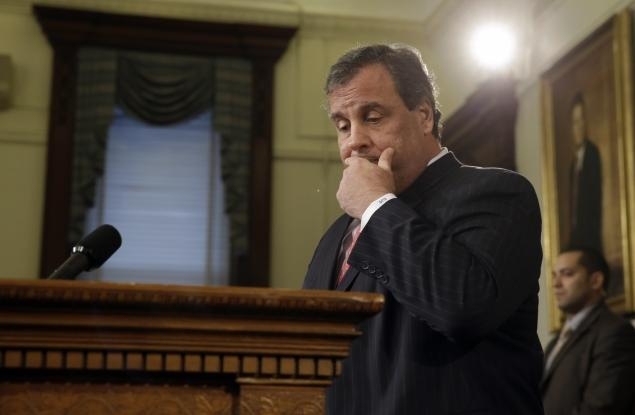 First, we had Bill Clinton, refusing to apologize for the affair that eventually became public. But now everyone seems to be apologizing-no matter how small the offense and no matter how sincere it is. A search of BizCom in the News for "apologize" reveals a whopping 96 stories over 3-1/2 years.
First, we had Bill Clinton, refusing to apologize for the affair that eventually became public. But now everyone seems to be apologizing-no matter how small the offense and no matter how sincere it is. A search of BizCom in the News for "apologize" reveals a whopping 96 stories over 3-1/2 years.
The author of an article in Dealbook, "Calling for an Apology Cease-Fire," complains of "knee-jerk" apologies instead of real apologies: "Saying you're sorry should be a way to get into the difficult process of grappling with authentic change." Current examples of Lance Armstrong and Anthony Weiner fall far short.
The article points to another recent apologizer, Chris Christie, who apologized for his administration's role in a retaliatory bridge lane closure 30 times in a press conference. Instead, the author encourages authentic apologies that meet these criteria:
- They must be painful. If an apology doesn't create vulnerability and isn't therapeutically painful, it's not an apology at all.
- They must be authentic and not an excuse. An apology can't have ulterior motives or be a means to an end.
- They must probe deep into the personal or organizational values that permitted the offense. Apologizers need to conduct a "moral audit" by looking themselves in the mirror and asking, "How did I get here and how did I drift from the person I aspire to be?"
- They must encourage feedback from the aggrieved. This includes truly opening up to input and two-way conversation during and after an apology, and embracing ideas as to how to improve.
- They must turn regret into a real change in behavior. The new behaviors they elicit must be continuing, reinforced by a sustained investment in avoiding the same mistakes in the future.
Whether Chris Christie's apology meets these criteria remains to be seen.
Discussion Starters:
- What would convince you that Christie's apology is authentic according to the author's criteria?
- In what ways did Lance Armstrong's and Anthony Weiner's apologies fall short?
- What, if anything, would you add to the criteria list?
Email Still Preferred for Pitching Stories
In a landslide vote, email won as the way media professionals want stories pitched. In a survey, Vocus: State of the Media 2014, 256 representatives from TV, newspapers, magazines, and online media chose email over social media, phone calls, and instant messaging.
Slides summarizing the findings show that, although respondents rely on social media for their reporting, they prefer not to receive stories through social media.
Discussion Starters:
- In what ways, if at all, do the survey results surprise you?
- Why do you think media professionals prefer email?
- For those who do prefer social media for story ideas, why do you think they prefer Facebook and Twitter to LinkedIn and Google+?
CVS Announces No More Cigarette Sales
CVS will stop selling tobacco products in its stores. Under the heading, "This is the right thing to do," the company explained the plan on its website.
Business Insider calls the move "a clear victory for public health" and "a shrewd tactic to bolster the public image of the pharmacy chain, which is increasingly positioning itself as a health care provider, not just a one-stop shop for greeting cards and cosmetics."
Management expects to more than make up the expected $2 billion revenue loss with other services. Without tobacco sales, CVS can boost its in-store MinuteClinics, which operate like health clinics, offering flu-shots and services for minor ailments.
Coca-Cola Boycotts After "It's Beautiful" Ad
People are boycotting Coca-Cola because of a Super Bowl ad showing "America the Beautiful" sung in different languages.
Tweets reflected the sentiment of people angry about the commercial, with some calling it unpatriotic and un-American.
- What's your view? Do you find the ad offensive?
- Mediaite refers to the reaction as a "Racist Twitter Backlash." Do you agree that the comments are racist?
Royal Caribbean Addresses Illnesses
Depending on what you read, between 600 and 1,000 people were ill on Royal Caribbean's Explorer of the Seas. Speculation about the cause ranged from rough waters to norovirus.
Royal Caribbean seems to be denying the possibility of norovirus, a highly contagious virus spread by infected food, people, or surfaces. In one statement, a spokesperson explained that someone was on a stretcher for a "reason unrelated to norovirus."
In another statement to CBS News, company spokesperson Julie Benson said, "The ship came in early to beat the closure of the port and not because of norovirus." She also said, "We have been really successful at stopping the spread of the norovirus onboard," and "The pattern suggests the illness was brought on board by passengers."
On his Cruise Law News blog, Jim Walker accuses Royal Caribbean of covering up the truth:
"Ms. Benson, of course, is not an epidemiologist of course. She has no medical or scientific education or training. Princess Cruises didn't fly a team of epidemiologists into the Gulf of Mexico and lower them down from a helicopter to the cruise ship to conduct tests and make a analysis.
"Ms. Benson's comments, in my assessment, are a PR stunt. This is right out of the cruise industry's playbook of how to manage a crisis when a cruise ship sickness epidemic breaks out. Rule number 1: Blame the Passengers!
"Cruise lines like Princess don't want the public to think that their cruise ships or crew members are the problem. To divert attention from the possibility of bad food or contaminated water or sick crew members, the cruise lines point the finger at their customers and accuse them of bring the virus aboard or having poor hygiene.
"But could it be bad hygiene of the crew? The CDC has found crew working while ill before. That's why the public has to rely on the education and experience of the experts and not PR cruise line people.
"Yesterday we wrote that there were passengers sickened during the last cruise. Did the ship clean up the contaminated surfaces and test the food and water after the last puke fest? How many people were sick last week? Perhaps Princess will tell us? Perhaps not."
The company's PR twitter feed responded to at least one follower:
But the main company twitter feed has been surprisingly quiet, with only one tweet about the ship's status:
Royal Caribbean did post two stories on its blog acknowledging norovirus but not the cause.
Discussion Starters:
- Assess Royal Caribbean's communications so far. How well is the company managing this crisis?
- What do you expect to happen next? What should be Royal Caribbean's next communication?
- What else should the company be tweeting during this time? Write a few tweets that could have been posted between January 25 and 31?
Graphic Australian PSA: Stay in School (NSFW)
A new public service announcement in Australia is taking a radical approach to encourage kids to stay in school. The ad show kids skipping school, having a good time, until...they blow up. At the end of the 1:46-minute video, we see a sign indicating that the kids were in an "explosives testing site."
This video is very graphic. Watch at your own risk!
The video reminds me of a UK PSA about texting while driving (also NSFW). We see four minutes of fun, and then the crash, the blood, and kids in stretchers carried off in helicopters.
Discussion Starters:
- Did you watch the PSA? Why or why not? If you did watch it, how did it affect you?
- How effective do you think the ad would be in discouraging kids from skipping school?
- Describe the philsophy of using such graphic ads? Why do you think they seem to be more prevalent in countries other than the U.S.?
School Superintendent Apologizes for Botched Delay
 A school district in Leander, TX, took too long to announce a delayed opening because of icy weather, and people were upset. By the time parents heard that schools would open two hours late, many of them were already on dangerous roads. Some kids were on buses, one of which skidded off the road. Fortunately, no one was hurt.
A school district in Leander, TX, took too long to announce a delayed opening because of icy weather, and people were upset. By the time parents heard that schools would open two hours late, many of them were already on dangerous roads. Some kids were on buses, one of which skidded off the road. Fortunately, no one was hurt.
Superintendent Bret Champion sent a letter explaining the decision and addressing complaints. Download the letter.
Discussion Starters:
- Analyze Champion's letter in terms of audience analysis, structure, content, writing style, and so on. What works well, and what could be improved?
- How well does Champion's letter specifically address concerns of the community?
- What responsibility does Champion place on parents? What's your response to this approach?
San Franciso Occupy Movement = Kristallnacht?
Tom Perkins, founder of investment firm Kleiner Perkins Caufield & Byers, has apologized for comparing the Occupy movement to Kristallnacht. In a letter titled "Progressive Kristallnacht Coming?" published in the Wall Street Journal, Perkins writes,
"I would call attention to the parallels of Nazi Germany to its war on its 'one percent,' namely its Jews, to the progressive war on the American one percent, namely the 'rich.'"
This story reminds me of when, last year, AIG's CEO said that criticism about the company's bonuses is "just as bad" as lynchings in the Deep South.
In an interview with Bloomberg Television, Perkins apologized:
"I'd deeply apologize to you and anyone who has mistaken my reference to Kristallnacht as a sign of overt or latent anti-Semitism. This is not the case."
Discussion Starters:
- In what ways is Perkins' comparison fair, and in what ways is it not?
- Try to relate to Perkins' frustration. What background information is important for us to understand?
- How do you assess Perkins' apology in the Bloomberg interview? What is effective, and what could be improved in his message?
President Obama's State of the Union
Yesterday, President Obama delivered the State of the Union address.
A Wall Street Journal graphic summarizes the 86 times the President's speech was interrupted by applause. The winning comments were about a military officer who almost lost his life in Afghanistan and about equal pay for women.
Although the graphic headline reads, "How the President's Speech Was Received," the reaction represents only those listening to the address in person.
Discussion Starters:
- How do you think the general population might have reacted differently than the in-person audience did? What specific parts of the speech might have received less applause?
- A former student emailed me: "Don't these speeches seem to lack any structure?" Do you agree? If so, what can politicans do differently?
- What are the strongest and weakest parts of the President's speech?
Goldman Parody Turns Into a Book
Here's the first parody Twitter feed turned into a book: @GSElevator, quips presumably heard on an elevator at Goldman Sachs.
Under the title "Straight to Hell: True Tales of Deviance and Excess in the World of Investment Banking," the anonymous author, according to the publisher, "will offer stories from his career in banking that capture the true character and nature of Wall Street culture today-a world far more abhorrent and way more entertaining than people can imagine."
In emails to the New York Times, the author ("Mr. Stone") described his interest in writing a book:
"These are stories that I have been collecting over the course of my experiences in banking-events that have been so outrageous and funny, that I thought that one day they might be worth sharing.
"Unlike other books that may be viewed similarly, this is not a whistle-blower scenario or an indictment or assault on a specific firm.
"My aim is to showcase and illuminate the true culture of Wall Street as I have experienced it, and write a book that is not only very funny and entertaining, but also, insightful and substantive."
Although the author has revealed his identify to his publisher, he has not identified himself publicly. People wonder whether he currently works at Goldman.
UPDATE: The author has been discovered. He's a bond trader in Texas who had a job offer from Goldman at some point but never worked for the company.
Discussion Starters:
- If the author does work at Goldman and this became known, how do you think his employer would react? Read more of his tweets to get a better idea of what he's writing. Should he be fired?
- Read about Greg Smith, who wrote an op-ed about his experience at Goldman. How are these situations similar-and different?
OfficeMax Apologizes for Insensitive Letter Address
A promotional letter from OfficeMax identified a customer by name and a line under it: "Daughter Killed in a Car Crash." The Seays' daughter, 17 years old, was killed in a car accident last year, so the information is accurate, but you might imagine how upset the family was to read such an address.
When Seay contacted OfficeMax's call center, a manager denied that he received a letter with that address. Later, OfficeMax told the LA Times that the mistake "is a result of a mailing list rented through a third-party provider," but the company is still trying to sort out how this happened.
At this point, Seay is asking for an apology from the CEO and an explanation of how this happened. He said to the LA Times, "Why do they have that? What do they need that for? How she died, when she died? It's not really personal, but looking at them, it is. That's not something they would ever need."
Discussion Starters:
- How do you think this happened? Who is responsible?
- What should OfficeMax do now? Do you think an apology from the CEO is appropriate? One writer noted that no one from the company called the family personally to apologize. Should someone? If so, who?
Big Brands Use Few @Replies
A new Simply Measured study shows that top brands are still reluctant to engage customers on Twitter. In the fourth quarter of 2013, 98 of the 100 largest global brands tweeted every day, with the average company tweeting 12 times each day. However, @replies trailed.
Only 46% of these companies sent one or more @replies each day. Although companies may interact one-on-one with people via direct messages on Twitter, which Simply Measured has no way of tracking, the low percentage makes us wonder how well companies are engaging customers online.
Pizza Hut leads the way, representing almost half of the 68,000 @replies sent from the entire top 100.
Of course, this is only one metric of an engaged brand on Twitter.
Discussion Starters:
- How would you explain the high level of activity on Twitter but relatively few @replies?
- Do individual (one-on-one) interactions matter? Is it worth the time spent?
- What is your own experience interacting one-on-one with brands on Twitter? What examples can you share of @replies or direct messages?
Target's Latest Communication with Customers
Target had to take some responsibility for the security breach that affected millions of customers. A New York Times investigation reported that, "cybersecurity and credit experts and consumers shows that Target's system was particularly vulnerable to attack. It was remarkably open, experts say, which enabled hackers to wander from system to system, scooping up batches of information."
This is the latest email to customers. Download the email. See previous messages.
Discussion Starters:
- Assess Target's email in terms of audience perspective, organization, content, word choice, and so on. What works well, and what could be improved?
- Write another communication for Target-one that would have been sent in December when the breach was first discovered.









